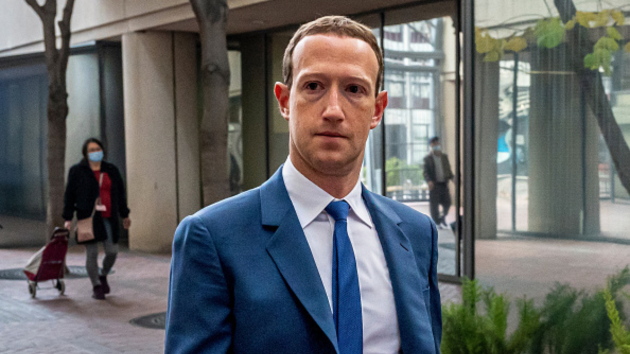Biden tackles inflation by targeting hidden fees. Will voters notice?
Written by ABC Audio ALL RIGHTS RESERVED on March 8, 2024
(WASHINGTON) — Enthusiasm about the U.S. economy has soared in recent months but polls indicate most consumers still bemoan inflation. More than 60% of adults say recent price increases have caused financial hardship for their family, a Gallup poll in January found.
Prices, in turn, have taken on outsized importance on the brink of a presidential election that may hinge on bread-and-butter concerns.
In recent months, the White House has announced a raft of measures aimed at lowering onerous fees faced by consumers when they miss a credit card payment, overdraft a bank account or book a hotel room.
The initiatives tackle costs borne by a large swathe of Americans, delivering potential savings while signaling the Biden administration’s desire to protect consumers from corporate practices that it deems predatory, some experts told ABC News.
However, they added, the message may not register with most Americans, since the hidden fees often remain out of sight, leaving them less influential than expenses like gas and grocery prices.
The Consumer Financial Protection Bureau finalized a rule on Tuesday that will cut the typical credit card late fee to $8 from $32, saving U.S. consumers an estimated $10 billion per year. Late credit card payments have reached their highest level since 2011, the Federal Deposit Insurance Corporation found in a report released on Thursday.
The White House policy came roughly two months after the CFPB introduced a rule that would slash the fee charged by banks when customers overdraft an account.
Since last year, the White House has undertaken a separate campaign to reduce “junk fees,” such as hidden costs added toward the end of a purchase involving concert or airline tickets.
“Fighting hidden junk fees is part of the President’s broader agenda to lower costs for Americans. The President thinks about these issues from the perspective of families sitting around the kitchen table working through their bills and balancing their budgets every month. While these fees might not mean much for the wealthy, they add up for middle-class families,” Jon Donenberg, deputy director at the National Economic Council, a Biden administration group that advises the president, told ABC News.
The Biden campaign did not respond to ABC News’ request for comment.
Teresa Murray, consumer watchdog at nonprofit advocacy U.S. PIRG Education Fund, praised the measures as a much-needed assault on unfair costs, especially when price increases burden many households.
“It’s important to have transparency and fairness no matter how good or how bad the economy is – no matter how high inflation is,” Murray told ABC News. “But at a time when a lot of folks are dealing with inflation and high food prices, then every dollar does count.”
The rules may not only lower costs for some Americans but also send a message that the Biden administration understands the challenges posed by high costs and aims to address them, Jon Krosnick, a professor of political science at Stanford University who studies how prices affect perceptions of the economy, told ABC News.
The goodwill toward Biden could extend well beyond those directly impacted, Krosnick said, since decades of research show that voters approach economic news through a wide lens that considers the implications for society at large.
“People ask ‘Is this good for the country as a whole?’ rather than ‘Is this good for me personally?'” Krosnick said.
However, many voters may not become aware of the initiatives in the first place because the measures lower hidden fees that consumers often lose sight of anyway, some experts said.
“Perceived price changes in very salient cases — such as groceries and other everyday goods — are a very crucial determinant of household beliefs about the economy,” Francesco D’Acunto, a Georgetown University finance professor who studies how people understand economic news, told ABC News.
The Biden administration, by contrast, is “targeting potentially important costs households face but ones that are less salient. So it would probably be less effective,” D’Acunto added.
Utpal Dholakia, a marketing professor at Rice University, echoed the point, noting that many of the fees occur less frequently than common household expenses.
“Most of us don’t stay in hotels 20 nights a month — most of us stay occasionally,” Dholakia said. “It’s not something that most people are concerned about on a day-to-day basis.”
For those who do hear about the initiatives, Dholakia added, the response may be determined by partisan affiliation instead of financial relief.
“To the extent that you’re politically engaged and a Democrat, you’ll obviously look at these actions in a positive light,” Dholakia said. “If you’re a Republican or independent, your reaction will be more muted.”
Polling data shows broad support across both major parties for the efforts to address fees, a White House official said. A survey in December from Data for Progress, a left-leaning polling firm, found that a Biden proposal to address junk fees was backed by 81% of Democrats and 77% of Republicans.
The U.S. economy performs well on just about every measure of economic health. Inflation is falling, job growth is surging, and gross domestic product is proving much more resilient than expected in the aftermath of near-historic interest rate hikes.
Attitudes about the economy have improved in recent months, data shows. Consumer sentiment inched lower in February but preserved much of the large gains achieved in previous months. The index, however, remains well below pre-pandemic levels, a University of Michigan survey found.
Despite making up a small share of consumers’ overall expenses, the fees tackled by Biden could draw more attention than some might expect, Amit Bhattacharjee, a marketing professor at the University of Colorado, told ABC News.
“These fees aren’t necessarily a significant component of prices but they feel annoying,” Bhattacharjee said.
Copyright © 2024, ABC Audio. All rights reserved.






